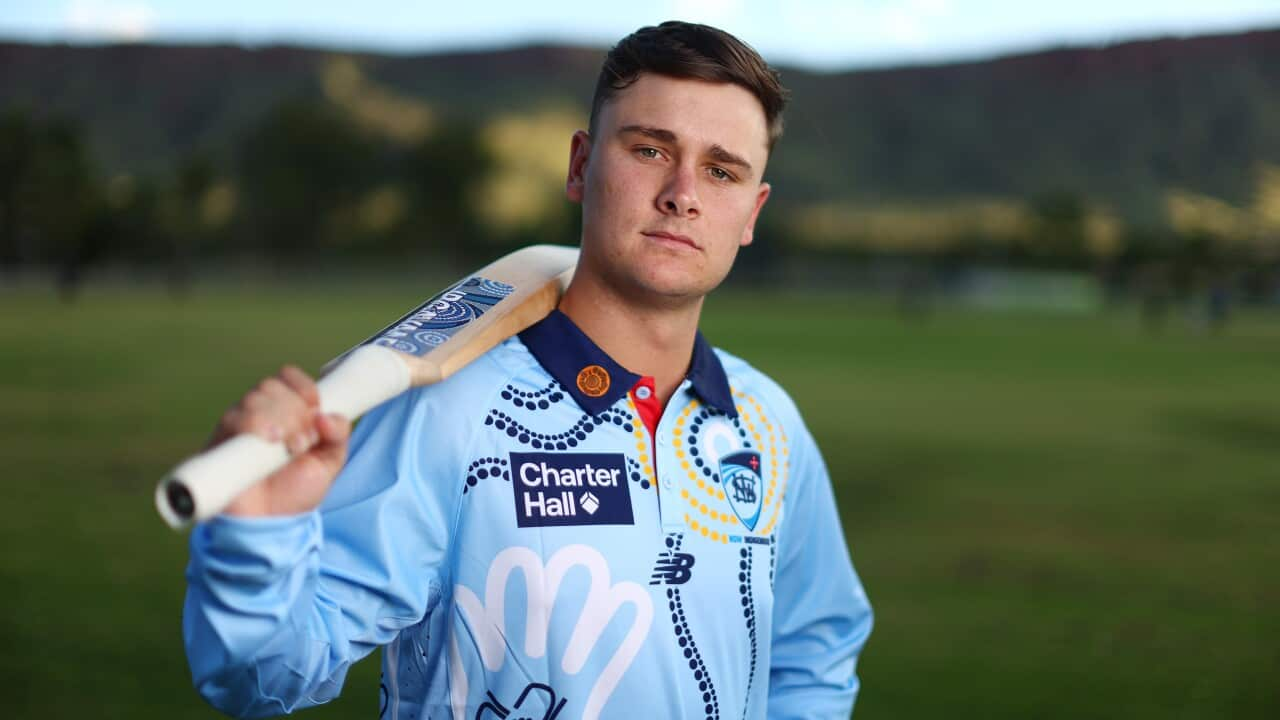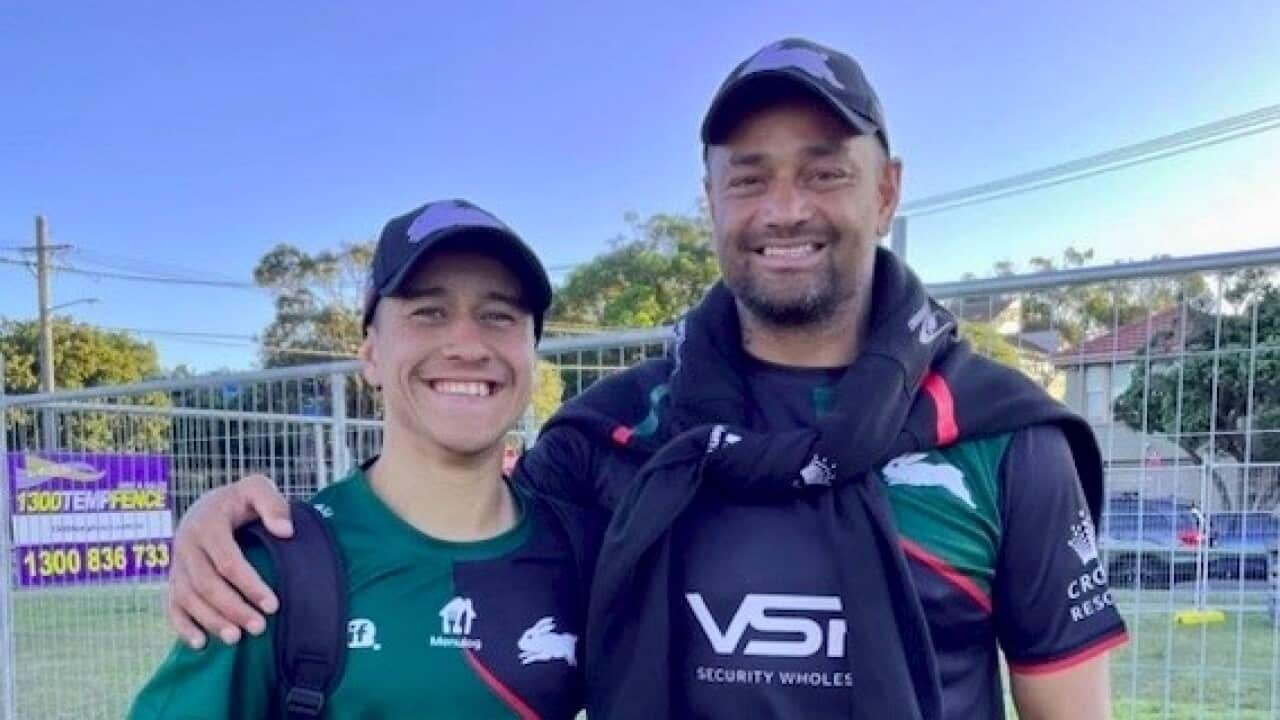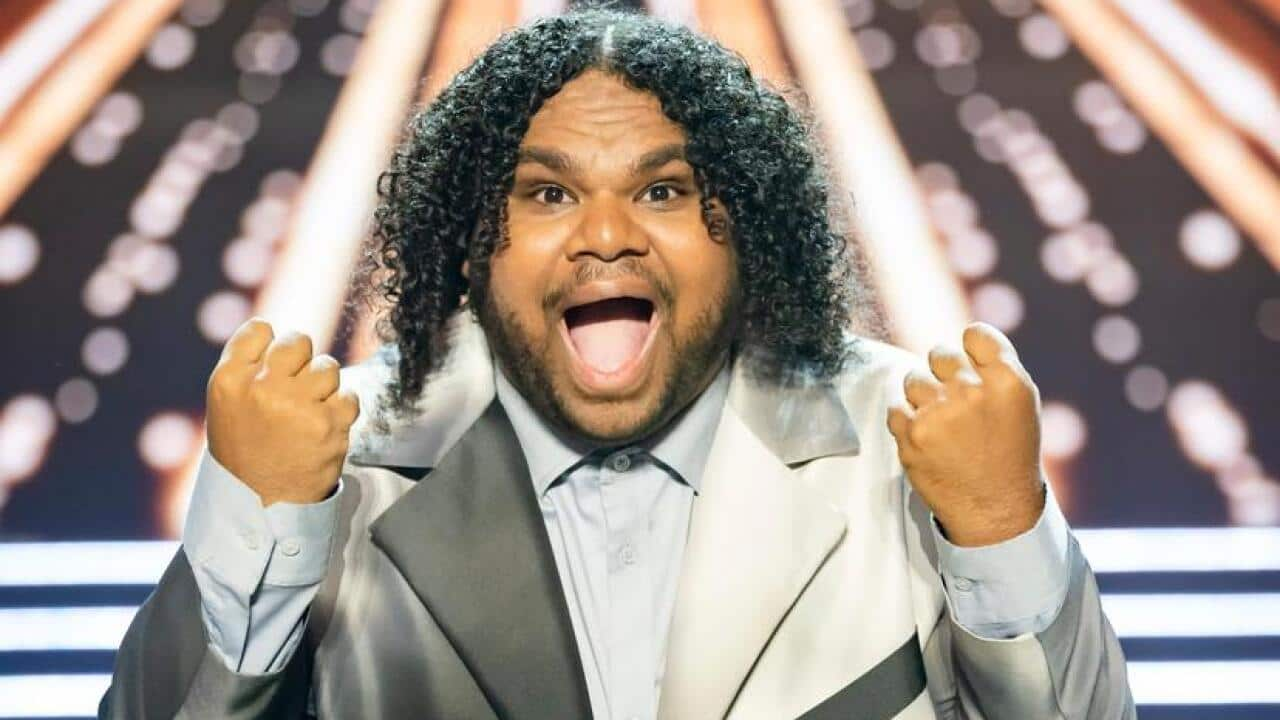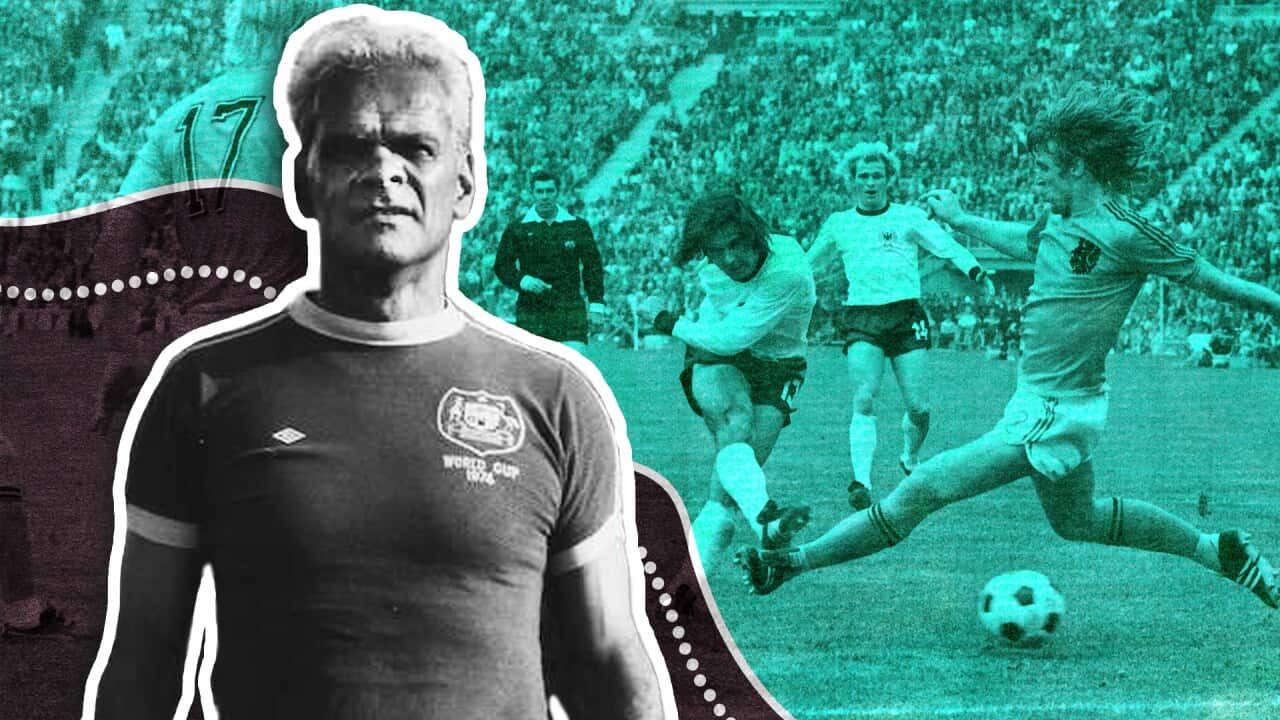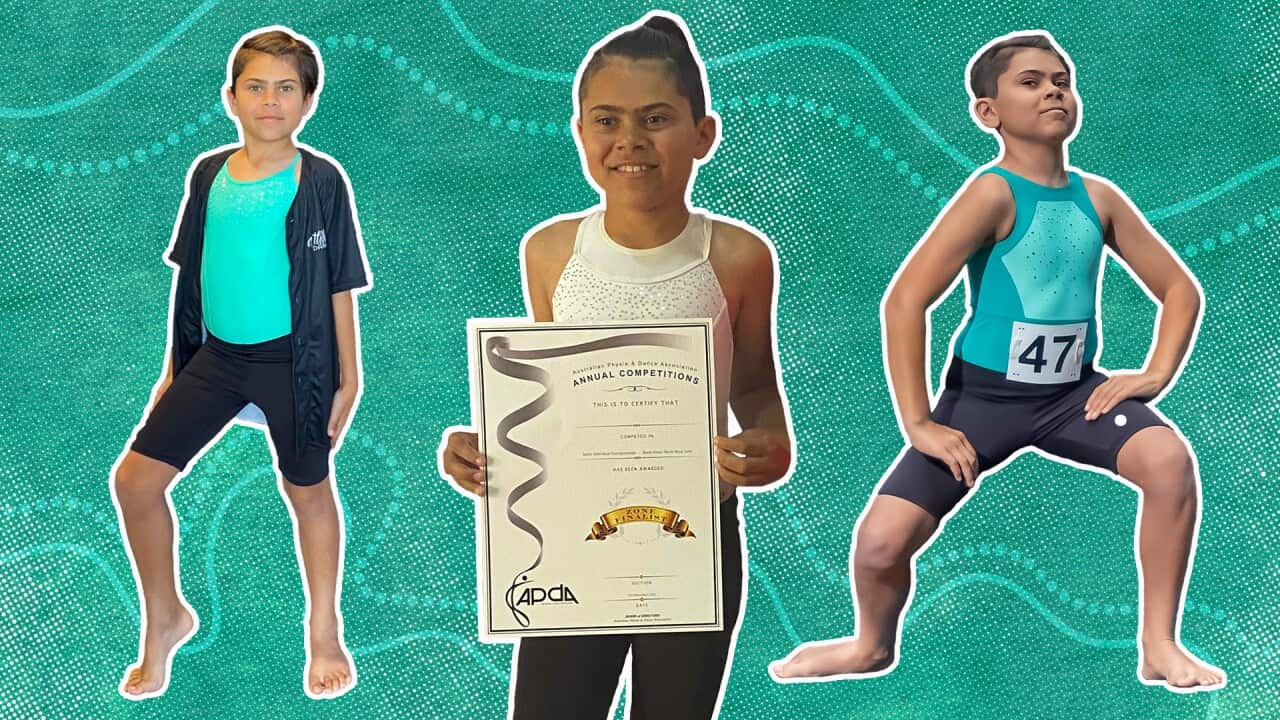Growing up, Tyran Liddiard would play backyard cricket with his dad in the sweltering western Sydney heat.
"I hated getting out, but I just loved the game," the Biripi man said.
"I would cheat my way to 100 every time... Dad let me get away with it."
At six years old he began playing rugby league in the winter. When summer rolled around, his friends would take up cricket.
At eight, he picked up the bat and had a crack himself.
He played his first match just up the road from his home and hated it.
"I remember the first game, I was so bored."
In his second game, he got the responsibility of wicket keeping - and immediately fell in love.
"I completely forgot about batting, I wanted to keep in every game, I asked the coach and all."
Eventually, Tyran looked forward to the end of the footy season, craving cricket.

Tyran Liddiard at 14 playing for Penrith at the local grounds. Source: Supplied / Tyran Liddiard
"As a kid I'd sit there and watch every ball in the Ashes and in the summer I'd watch every game," he said.
"I'd have a little book that Mum bought me, I'd write down all the players' names, who they played for, the scores."
The Liddiard legacy
Tyran is the son of Glen Liddiard, former Penrith Panthers and Parramatta Eels star.
Glen made his first-grade debut in England at 16. Two years later, he came home to play for Parramatta Eels. He moved across to the Panthers in 1992, and now works as the Indigenous Welfare Officer.
Glen is one half of the talented Liddiard brothers duo.
David Liddiard, Tyran's uncle, played for Parramatta, Penrith and Manly.
Growing up, Tyran felt the weight of his last name, and a pressure to perform on the footy field.
But cricket gave him something else - a chance to make his own legacy.
"I was able to create my own path," he said.
"I felt a little bit of pressure in footy because they were just so good. But in cricket, I felt more free and I was good at it."
Becoming a sportsman
At only 16, Tyran played at his first Imparja Cup - the nation's premier cricket carnival hosted annually in Mparntwe, Northern Territory.
"I remember when I went up to the Imparja Cup for the first year, I felt like I made it," he said.
In 2018, Tyran travelled with the Aboriginal XI tour to England and was announced the captain of the Sydney Thunder Indigenous XI.
In 2019, Tyran made his first-grade debut with Penrith. They took out the premiership, and Tyran was awarded the Benaud Medal for Man of the Match.
Only 21 at the time, he was the second youngest person in history to win the title.

Tyran Liddiard celebrates with teammate Djali Bloomfield at the National Indigenous Cricket Championships. Credit: Albert Perez - CA/Cricket Australia via Getty Image
Representing his people
Earlier this month, Tyran led the NSW Men's team to victory at the National Indigenous Cricket Championships. The team retained the title for the fourth consecutive year.
Next month, Tyran will travel with the Indigenous XI men's and women's squads to Vanuatu for the inaugural tour - which will see both squads play four T20 matches each against Vanuatu.
For Tyran, it's about what wearing the uniform means - not so much the result.
"I'm very honoured to be able to represent my culture. I'm very very blessed with the opportunities I've been given with the Australian Indigenous team," he said.
"I was a kid I always dreamed of wearing the yellow and green and representing my country as a sportsman.
"It's special that not only can I represent my country, but also my tribe, my people, at the same time."
Culture in the classroom
But cricket isn't everything for the young star.
When he isn't on the pitch, Tyran's in the classroom. He's a primary school teacher in his community, and works for the NSW Department of Education recruiting more young Aboriginal teachers.
"For me, I love kids. I have two younger brothers... There's a big age gap between us so I try to be a role model for them," he explained.
"Being able to be a teacher allows me to be that role model, a positive one for my community."
Much of what drives Tyran is his culture.
"I look back on my schooling life and I didn't learn anything about my culture," he said.
"I was just lucky that I had my family... A lot of us now in the profession are trying to change that.
"We want to reduce those stereotypes, we want to end those stigmas about our people. And the best way to do that is through education, knowledge is power."
